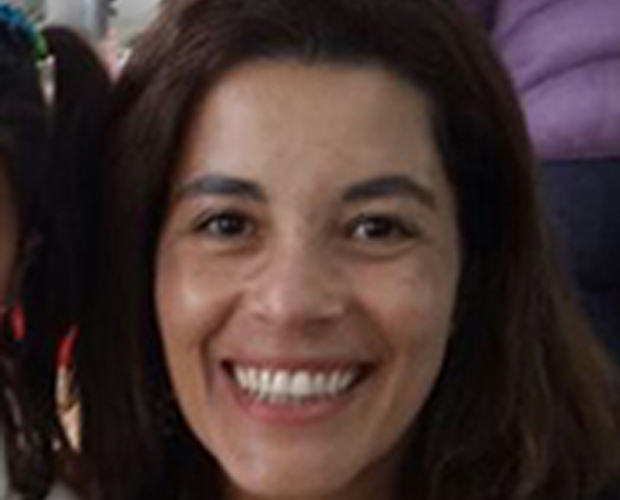Duke Alumna Advances Human Rights In Colombia

As Chemonics’ deputy chief of party for the USAID/Colombia Human Rights Program, Laura Zambrano MIDP’04 plays a key role building the capacity of the Colombian government and civil society to prevent and respond to human rights violations. Ongoing since 2000, the program is one of the largest in the world related to human rights.
Zambrano most recently worked with the United States Agency for International Development (USAID) to strengthen local authorities’ capacity to understand, analyze and respond to risk and mitigate potential human rights violations. The initiative is an outgrowth of the Colombian Early Warning System (EWS), supported by USAID to monitor conflict in the country.
Her office is working in 40 municipalities and nine departments to determine their capacity and willingness to use such a system.
“What we have to concentrate on now is helping local authorities better identify the risks at the local level,” she said. “We can’t have a policeman on every corner; we need to enable [communities and authorities] to prevent violations and act quickly when and if the need arises.”
Protecting LGBT rights in Latin America
In her role with USAID, Zambrano also works to prevent other human rights abuses against vulnerable populations – particularly those against the LGBT community in Latin America.
Her program has supported civil society organizations working to bring the murderers and abusers of LGBT citizens to justice. It also connects local and national advocacy groups, and produces communications pieces to educate local communities and the government about abuses against the LGBT population.
In line with these initiatives, the Colombian government included LGBT rights in both the peace accord and its 2012 Victims’ Law. While the government is still working on a national LGBT policy, same-sex marriage was legalized this year and adoption became legal for same-sex couples in 2015.
“We’re finding a lot of collectives and people in local communities that are saying they have been hiding [their sexual orientation] for many years, and are just now coming into the open,” Zambrano said. “That is putting new pressure on local and national governments, having constituents pounding on their doors and demanding response.”
Overcoming the fear
Zambrano’s first experience in development was with Opción Colombia, a volunteer program similar to the Peace Corps in the United States. For six months, she worked to develop a local health plan in a rural community called Ráquira.
After growing up in the capital city of Bogota, “seeing the rural area was a huge eye opener,” she said. “There was a historic feud between families that had hated each other for years, and people were actually killed when I was there. I thought to myself, ‘Why am I here? Why am I not at home with hot running water?’”
Despite her fear, Zambrano could not refuse the opportunity to promote peace and development in her home country. She began working with USAID/Colombia’s displaced persons program in 2000, traveling to conflict areas to facilitate the reentry of former child combatants into society. The experience, she said, left her heartbroken.
In part to advance her skills – and in part to escape the horrors she saw in rural Colombia – she came to Duke University on a Fulbright Scholarship in 2002 to pursue her Master of International Development Policy (MIDP).
Energized after completing her degree, she returned to the USAID/Colombia program “for a second round.” For nearly three years, she worked to demobilize and reintegrate members of paramilitary groups, setting up the government database on ex-combatants.
She then joined International Relief and Development (IRD) in 2008, where she resumed her work helping displaced people with food and emergency health and psychological care. She worked in many small towns, including Tumaco, a port city in the southwest corner of Colombia known for its lethal mix of poverty, drug lords, paramilitary and guerrillas.
“It’s a beautiful place with wonderful people, but the situation is an absolute disaster,” she said. “Gunfire and explosions were a regular occurrence.”
She joined Chemonics as a response coordinator for the USAID/Colombia Human Rights Program in 2012, and was promoted to deputy chief of party three years later.
“My ultimate goal is to wake up one morning and not be afraid for myself or for others,” she said. “To live in a country that is less violent, where there is less suffering, and where there is more opportunity for dialogue.”

